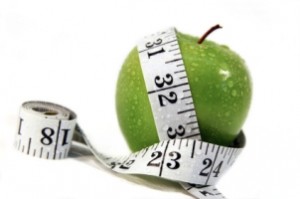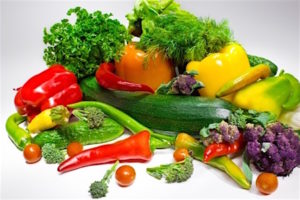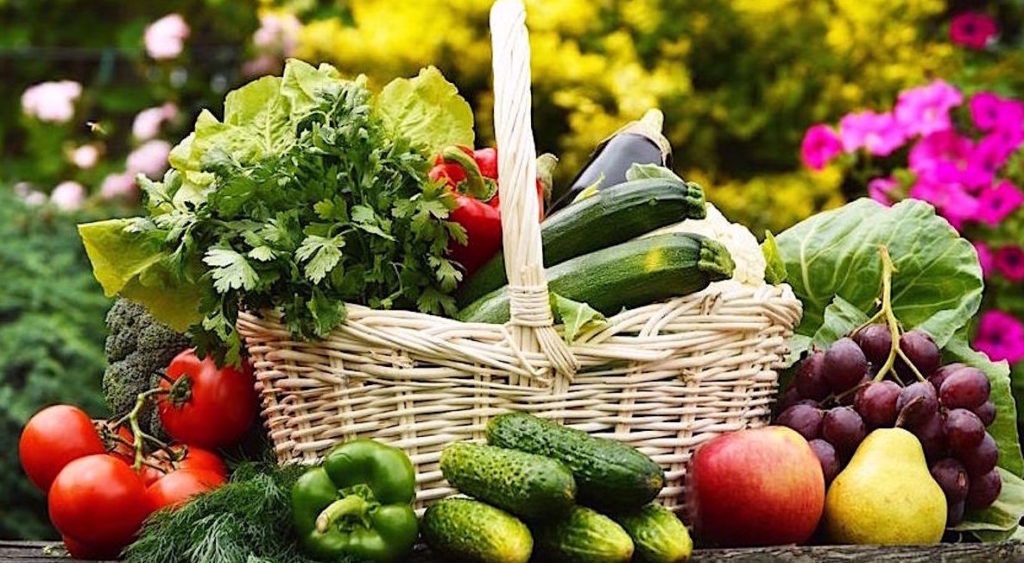“Have 5 vegetables a day!”
“Eat fresh fruit, not cookies!”

Many of us heard a version of these phrases from a parent or guardian when we were kids. Though we may have protested, even our child-size brains knew they had a point. Your parent’s main concern was that you thrive and grow into a healthy adult. Somehow, despite ignoring their advice whenever you could, you’re now a well-rounded adult. Or are you simply, well – a little too round? Are you nostalgic for childish things, now you’re an adult and facing real life stressors? Are you longing for the simple days when your big decision was apple vs. cookies? Do you seek comfort from comfort foods?
We all do this sometimes. But we know, as adults, that the food choices we make affect more than our waistlines. Our choices impact all aspects of life. We know that we need the phyto-nutrients and antioxidants found in fruits and veggies more than ever to help fight adult-sized stress and free radical damage on our aging bodies.
Making the right food choices will give you a fighting chance against premature aging and illness; The right food can contribute to a good night’s sleep and keep your intellect sharp all day by staving off low sugar blues. Identifying food sensitivities and avoiding those foods can aid weight loss and alleviate digestive problems. Proper food choices can help women sail through menopause. It can help all of us prevent chronic illness and cancers, stave off depression, obesity, and even improve your sex life.
What Healthy Eating Can Do For You:
- Increase energy and performance
- Promote a greater ability to concentrate
- Strengthen your immune system
- Enhance your libido
- Help reach your ideal body weight
- Reverse signs of aging
- Improve self-esteem and confidence
- Create a more positive attitude about your liffe
Stress can contribute to wrong choices and generally wreak havoc, so it’s important to manage your stress. The first step towards management is to recognize there are different types of stress and different stress responses, and for every type of stress there are specific foods that can help you manage. By following the food suggestions for different types of stress, you’ll find it easier to ignore the stress impulse to reach for ice cream, cookies, wine, or whatever. That route hasn’t really worked for you in the past, so now it’s time to learn about food choices that do work. (Please note that before making any changes in nutritional intake or life style choices you should mention it to your Doctor or Health Practitioner.)
cookies, wine, or whatever. That route hasn’t really worked for you in the past, so now it’s time to learn about food choices that do work. (Please note that before making any changes in nutritional intake or life style choices you should mention it to your Doctor or Health Practitioner.)
What is stress? “Stress is the body’s reaction to a change that requires a physical, mental, or emotional adjustment or response. Stress can come from any situation or thought that makes you feel frustrated, angry, nervous, or anxious. Stress is caused by an existing stress-causing factor or “stressor.” Therefore stress is multifaceted and can lead to frustration, anger, nervousness, sadness, or anxiety, or all of the above.
Different Types of Stressors and Foods that Fight Back:
Stress that threatens safety
• Threats on your life, losing your home, losing your job, losing your partner or parents, a serious car accident, a court sentence, etc.
Unfortunately, we have all been touched by one, or several of these episodes. Some folks go through life unaffected. How do they do it? You may have noticed that some days you handle everything thrown your way with ease and good nature. At other times, the smallest incident can send you over the edge. Yes, certain foods rich in B vitamins can help you maintain equilibrium. Swiss chard is one such power house. It’s full of minerals and B vitamins that help handle stress, and a one cup serving has only 35 calories. This wonder product from nature has the potential to reduce blood pressure, and cholesterol. It also delivers antioxidants that help fight free radical damage that leads to premature aging and illness.
 Serving Suggestion: steam Swiss chard lightly and serve drizzled with cold pressed olive oil and pressed garlic. A sprig of parsley after will clear the garlic breath. Parlsey also supports kidneys and helps release built up acids and fluids. When we are under stress we often hold on to more water and experience edema type symptoms. Drinking a brew of parsley tea boiled in water will help relieve these symptoms. Other benefits of parsley:• neutralizes carcinogens in cigarette smoke and and BBQ’d food• boosts energy in spite of stress because it has magnesium and calcium • helps sleep because it has tryptophan, an amino acid well know for its role in inducing relaxation and sleep (think: turkey dinner).
Serving Suggestion: steam Swiss chard lightly and serve drizzled with cold pressed olive oil and pressed garlic. A sprig of parsley after will clear the garlic breath. Parlsey also supports kidneys and helps release built up acids and fluids. When we are under stress we often hold on to more water and experience edema type symptoms. Drinking a brew of parsley tea boiled in water will help relieve these symptoms. Other benefits of parsley:• neutralizes carcinogens in cigarette smoke and and BBQ’d food• boosts energy in spite of stress because it has magnesium and calcium • helps sleep because it has tryptophan, an amino acid well know for its role in inducing relaxation and sleep (think: turkey dinner).
Stress that brings us self-doubt
• Criticism about your work or not feeling accepted by others.
However, this only applies if the person already has self-doubt about their abilities. If the foundation is strong, the criticism will be like water off a duck’s back.
Fennel builds inner confidence through its aromatic constituents. Where there is stress and self-doubt, the stomach and digestive process will be affected. Fennel will calm that down. If your stomach is stable, you will find the strength within your abdominal core muscles to eliminate the self-doubt and take a stand. Fennel is a great appetite suppressant due to its high content of anethol volatile oil. This substance tells the brain you are full, and you may find yourself feeling satisfied with less food. In addition, fennel boosts the immune system to help overcome infections and help reduce inflammatory conditions. Serving Suggestion: Make yourself a raw fennel, beets, apple and kale salad. Sliver all thinly by hand or in a food processor. Dress with a generous dressing of lemon juice, flax oil and a dash of cumin. Apples also have a multitude of health benefits – eating just two apples a day can help lower cholesterol and blood pressure. Beets support the liver and skin cleansing.
Stress that registers as disappointment and unmet expectations
• When we feel our loved one or loved ones shun us or turn their back on us, or our romantic partner leaves us.
We need to look within and examine our expectations. Most of the time the romantic and emotional expectations are unrealistic and the disappointment can only happen if your expectations are not realistic.
Example: I deal with a woman who dreams of her husband coming home for dinner.I ask her if he has ever come home for dinner in 15 years. She says, “Not yet.” But she continues to dream that things will change, and he will show up for dinner. Every night she sits at the dinner table until he rolls in around 1 to 3 in the morning. She leads with her unhappiness by living in a world of delusion.
You are aghast at this ridiculous example. You would be surprised how many people continue to believe the lies they tell themselves to keep themselves safe in dead end jobs and relationships. I often see the other side of the coin, too; There are people who only anticipate struggle, disappointment and problems. When good fortune comes to these people they are astonished and are waiting for the good thing to go sour and/or they begin to sabotage the situation to fulfill their belief that life is a struggle and wishes do not come true.
Emotional disappointments trigger a response that lowers immunity and often result in respiratory sysmtoms such as the flu, colds or other bronchial problems. Therefore, if your stressors are focused around emotional disappointments, it’s necessary to support the respiratory system. If you are experiencing this, eliminate all dairy products until the illness phase passes and add ginger and turmeric to your diet. Ginger acts a stimulant to improve circulation, it supports the inner lining of the digestive track, and helps overcome respiratory problems. Ginger is also a potent anti-inflammtory that helps reduce the symptoms of arthritis.
Serving Suggestions: • Use shredded or diced in stir fries• boil in water to make a tea• add to your juicer when making juice• remove core and seed of an apple, stuff it with ginger and bake• add to salad dressing with sesame oil• use in marinades and sauces
Stress that irritates and feels like conflict
• When you are in a situation where another person is pushing you to change or go in a direction that is not familiar to you or is distasteful, or you find yourself in an argument or direct conflict.
Often conflict can be an internal argument. You find yourself endlessly mulling over things, weighing the pros and cons of a situation – such as whether to stay in a marriage or leave the marriage.
If your stress response is to express irritation or anger, then you need liver support. For this, look to
Artichokes and fresh lemons and limes.
Cooking an artichoke is simple, yet I meet many people who are intimidated at the thought and don’t know where to begin.
It’s easy – just steam for 45 minutes with a couple of sprigs of fresh rosemary. (Reserve the cooking water! This important step will be explained further). To serve the steamed artichoke, remove the leaves on by one and dip the bottom of the leaf in hummus or a light mixture of cold pressed virgin olive oil, fresh rosemary, fresh lemon juice, pressed garlic, and dry mustard. When you get to the center there is a round area with thistles in the middle. Cut out the thistle area and you have now reached the heart of the artichoke. This part is regarded as a culinary delicacy – fill with your favorite dressing and enjoy. While this is a pleasurable experience for the palate that helps the liver, to amp up the detox, drink 2 cups of the water reserved from steaming the artichoke. You may find it bitter but, along with rosemary, an aromatic herb, it cleanses and supports phase 1 and phase 2 of the liver detoxification process. You can add lemon to the mixture.
Stress that frustrates
• Sitting in traffic that is going nowhere for hours
• Waiting to resolve a court case that is taking years.
• You feel helpless waiting for things to resolve themselves
The common component that leads to stress in all the above examples is the self-talk that results after the event. That self-talk will become our reality.
For instance, when we feel criticized at work we may tell ourselves, “Yep, I am an idiot, just like mom always said.” And then it’s all down hill from there.
The solution to the slippery slope is to become aware of the TRIGGER that sets off the negative and destructive and usually untrue, internal message. Recognizing the trigger will help you pause for an honest moment and hopefully reassess that knee-jerk reaction and substitute it for a more reasoned outlook, such as “everyone makes mistakes” and/or “what different/better approach will help avoid a repeat?”
The food to help stress that frustrates is romaine lettuce – often overlooked as old hat but a great contributor to your well being.
Romaine lettuce is another good energy booster on stressful days – a salad a day will keep the stress bugs away!
Romaine lettuce delivers, since it has high doses of chromium. This mineral helps keep blood sugar stable. If you are experiencing a blood sugar roller coaster you will be significantly more affected by the slightest stressors. Romains also contains B1, B2 and tryptophan which help the nervous system deal with stress. Include hemp hearts, raw sunflower seeds and sesame seeds in a salad to boost healthy essential fatty acids. (Remember, toasted or sugared nuts hinder the benefit of the nuts.)
Stress over uncertainty of the future
• Results in fear
The food for fear is celery.
Plain old garden variety celery is often over-stepped for more glamourous and trendy vegetables, but celery is a real star. Check out what celery offers:
- High roughage, low calories
- Helps process carbohydrates
- Alkaline, so protects against high acid and purifies blood
- Greener stalks contain more vitamin A and celery helps stabilize blood sugar and aids with diabetes
- Contains B vitamins plus sodium, potassium and magnesium
- Regarded as a fountain of youth product
- Helps keep body limber and muscles from stiffness and aching
- Arteries, muscles and joints harden with too much calcium – sodium keeps calcium levels in check
- Eat the leaves! – they are high in potassium sodium and sulphur
Healthy Food Tips—Wellness from the Inside Out
• Eat five small meals a day, each consisting of a protein, healthy carbohydrate, and healthy fat
• Plenty of fruits and vegetables• 30 minutes of exercise or movement each day
• Healthy nuts and seeds such as almonds, walnuts, sesame seeds, sunflower seeds
• Fish three times a week
• Lemon and warm water at wake up
• Filtered water – 12 to 14 glasses per day
Now is the time to start taking preventative steps that will lead to reversing the biological clock of life.
This articles is extracted from a blog post originally printed in the The Catholic Principals’ Council of Ontario Newsletter: “Connections.”
Please contact Alex Gellman to arrange a remote or in-person consultation appointment.








